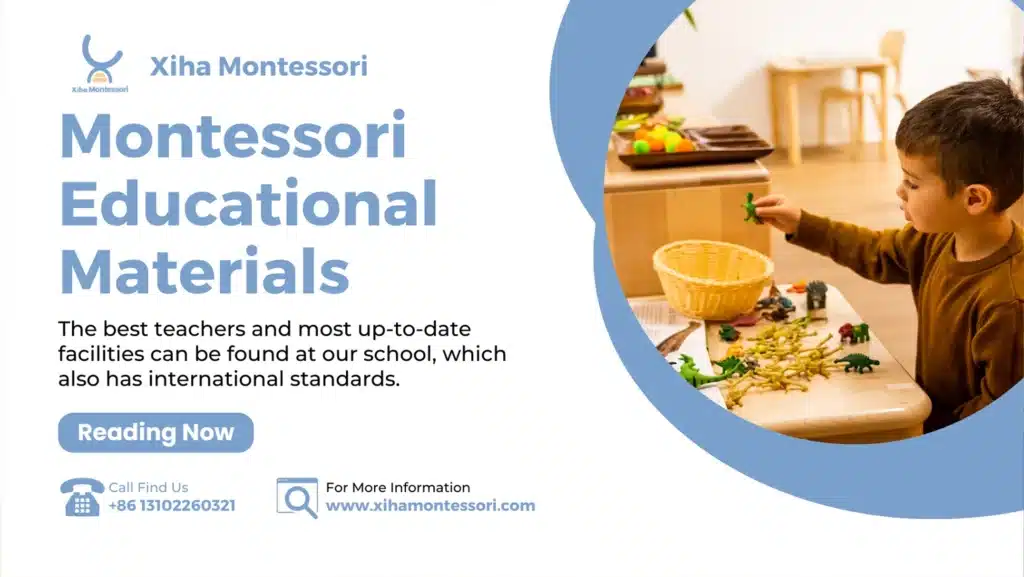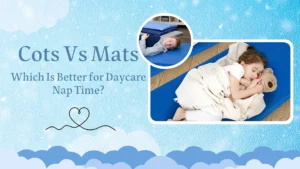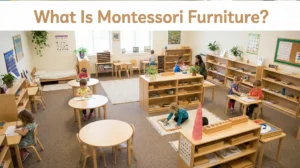Are you looking for the best way to unlock your child’s potential? Do you want to foster independence, creativity, and a love for learning in your child? How can Montessori educational materials transform your child’s development?
Montessori educational materials are designed to support holistic development through hands-on, self-directed learning. In this comprehensive guide, I will walk you through the different types of Montessori materials, their significance, and how to effectively use them in classroom and home settings to promote your child’s growth.
Stay with me as we explore the world of Montessori materials and discover how they can create a nurturing and engaging learning environment for your child.
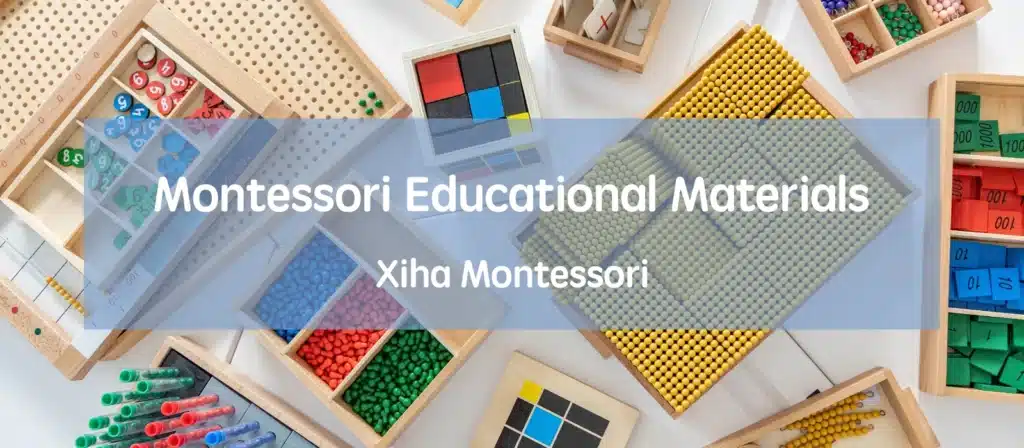
What is Montessori Education?
Montessori education is a child-centered approach developed by Dr. Maria Montessori, emphasizing hands-on, experiential learning and collaborative play. It fosters rigorous, self-motivated growth in all areas of development, nurturing each child’s natural desire for knowledge, understanding, and respect. Rooted in the belief that children learn best when they are free to explore and discover within a structured environment, Montessori education promotes independence and a lifelong love for learning. As Dr. Montessori said, “Play is the work of the child.”

“Free the child’s potential, and you will transform him into the world.”
Dr. Maria Montessori
The Philosophy Behind Montessori Educational Materials
The philosophy behind Montessori educational materials is to empower children with tools that facilitate self-directed learning and discovery. These materials are meticulously designed to be engaging and hands-on, allowing children to learn through active exploration and play. Each material serves a specific educational purpose, helping children develop crucial skills and concepts such as fine motor skills, sensory perception, language, mathematics, and cultural understanding. By encouraging independent problem-solving and critical thinking, Montessori materials support the child’s holistic development, nurturing their natural curiosity and fostering a lifelong love for learning.
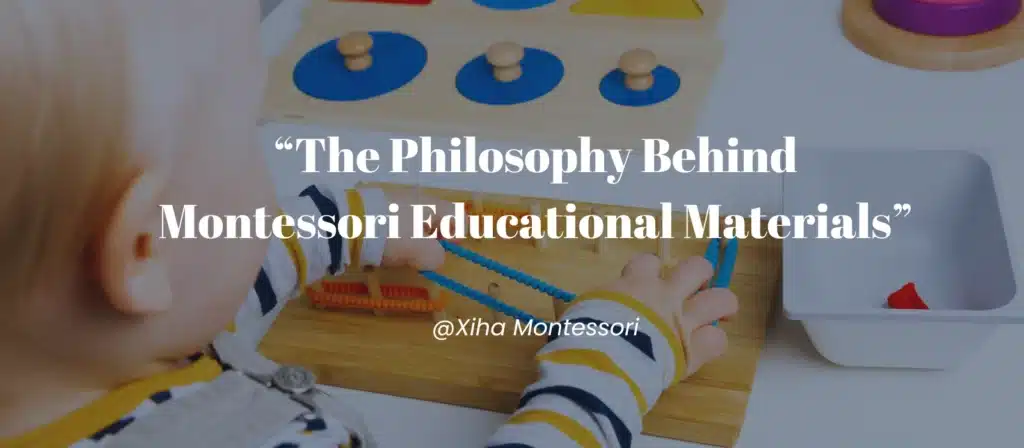
The Importance of Montessori Educational Materials
Montessori educational materials are crucial for fostering children’s independence, critical thinking, and problem-solving skills. These materials are self-correcting, meaning children can learn from their mistakes without constant adult intervention. This promotes confidence and self-sufficiency as children learn to trust their abilities and judgments.
Types of Montessori Materials for Different Age Groups
Montessori materials are designed to meet the developmental needs of children at various stages. Here are some examples of materials for different age groups:
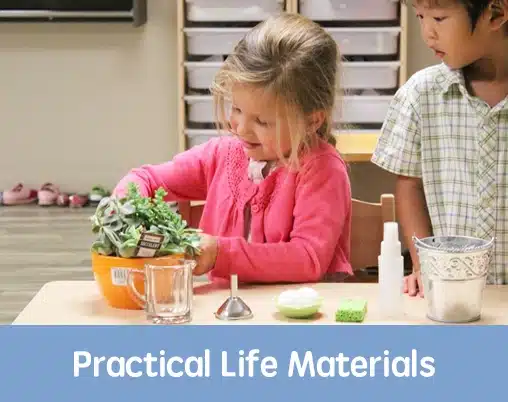
Practical Life Materials
Practical life materials help children develop fine motor skills, hand-eye coordination, and independence through everyday tasks.
- Ages 0-1: Simple grasping toys, soft cloths for wiping, and large, easy-to-hold objects.
- Ages 2-3: Pouring water, spooning beans, and using dressing frames (buttons, zippers).
- Ages 4-5: More complex activities such as table washing, food preparation (cutting soft fruits with a child-safe knife), and plant care.
- Ages 6-7: Advanced practical life activities like sewing with a needle, baking, and simple household chores.
Sensorial Materials
Sensorial materials refine a child’s senses and help them categorize and understand the world around them.
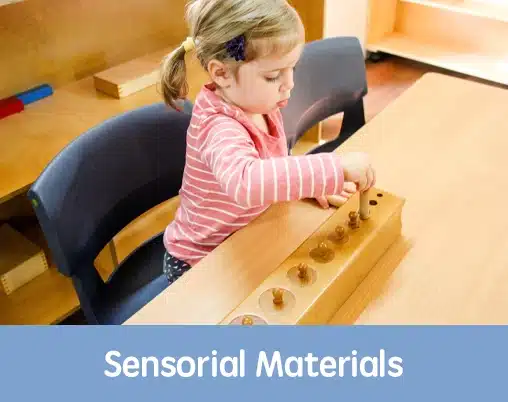
- Ages 0-1: Soft sensory balls, rattles, and fabric with different textures.
- Ages 2-3: Basic sensorial materials such as color tablets, sound cylinders, and texture boards.
- Ages 4-5: Intermediate materials like the pink tower, brown stair, and geometric solids.
- Ages 6-7: Advanced sensorial materials such as the trinomial cube, smelling jars, and Montessori bells.
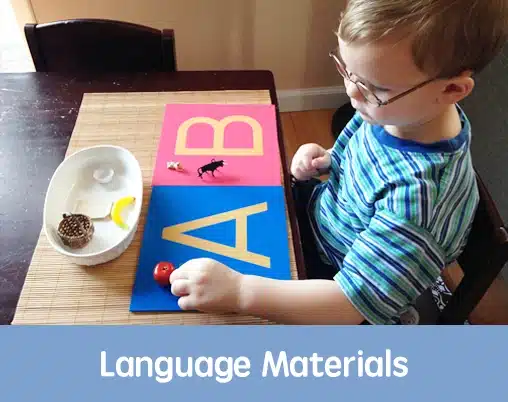
Language Materials
Language materials support the development of reading, writing, and communication skills.
- Ages 0-1: Simple board books, picture cards, and soft alphabet blocks.
- Ages 2-3: Introduction to phonetics with sandpaper letters and picture cards.
- Ages 4-5: Movable alphabets, simple word building, and phonetic reading cards.
- Ages 6-7: Grammar symbols, sentence analysis, and advanced reading comprehension cards.
Mathematics Materials
Mathematics materials make abstract concepts concrete, aiding in understanding numbers, quantities, and basic arithmetic.
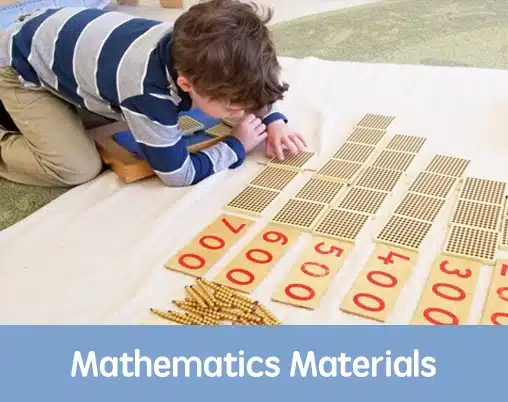
- Ages 0-1: Simple stacking rings, shape sorters, and number mobiles.
- Ages 2-3: Introduction to numbers with sandpaper numbers and counting rods.
- Ages 4-5: Number rods, spindle boxes, and basic addition/subtraction with golden beads.
- Ages 6-7: More complex materials like the decimal system, multiplication bead board, and fraction insets.
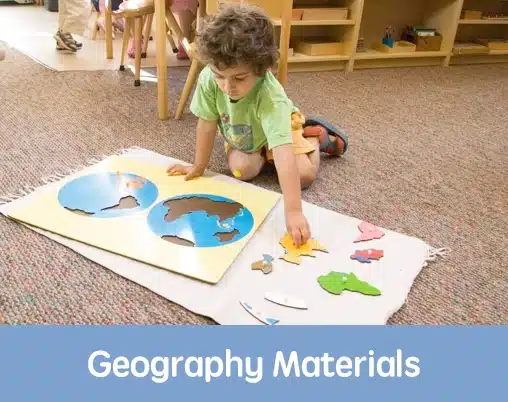
Geography Materials
Geography materials introduce children to the study of the Earth’s landscapes, cultures, and environments.
- Ages 0-1: Large picture books with photos of different places, soft globes.
- Ages 2-3: Simple continent puzzles, basic land and water forms, and introductory globe activities.
- Ages 4-5: More detailed maps, continent boxes with cultural artifacts, and land/water/air classification cards.
- Ages 6-7: Comprehensive atlas activities, biome studies, and in-depth cultural projects.
Biology Materials
Biology materials help children understand living organisms and their environments.
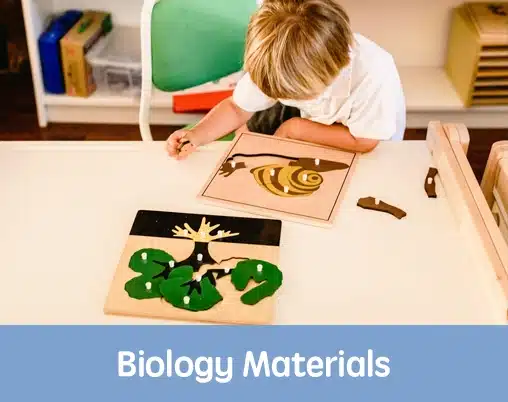
- Ages 0-1: Soft animal toys, and picture books with animals and plants.
- Ages 2-3: Basic nature studies, such as parts of plant and animal puzzles.
- Ages 4-5: Detailed parts of a flower, tree, and basic life cycle studies (e.g., butterfly, frog).
- Ages 6-7: Advanced classification of living things, human anatomy models, and detailed ecosystem studies.

How to Choose the Right Montessori Educational Materials for Your Child
Choosing the right Montessori educational materials involves considering your child’s developmental stage and interests. These materials are fundamental in fostering independence, curiosity, and a love for learning. Here are some tips to help you make informed decisions:
Observe Your Child
Pay close attention to your child’s interests and developmental needs. Observe what activities they naturally gravitate towards and what skills they are currently developing. This will help you select Montessori educational materials that align with their interests and support their growth. For instance, if your child enjoys building, materials like the pink tower or constructive triangles might be ideal.

Start Simple
Begin with basic Montessori educational materials that match your child’s current developmental stage. Gradually introduce more complex materials as your child masters simpler tasks. This approach ensures that your child is neither overwhelmed nor bored, keeping their learning experience engaging and productive. For example, start with simple pouring activities in practical life exercises before moving on to more complex tasks like buttoning frames or baking.
Quality Over Quantity
Invest in high-quality Montessori educational materials that are durable and provide meaningful learning experiences. These materials are designed to last and to be used repeatedly, so choosing well-made items will ensure that they remain effective and appealing over time. High-quality materials often feature natural, tactile elements like wood, which are aesthetically pleasing and durable.
Ensure Variety
Include a range of Montessori educational materials that cover different areas of development, such as practical life, sensorial, language, mathematics, geography, and biology. This variety ensures a well-rounded educational experience that addresses multiple facets of your child’s growth. A diverse selection helps children develop a wide array of skills and keeps their learning environment stimulating and dynamic.
Personalize the Learning Experience
Remember that every child is unique. Tailor the selection of Montessori educational materials to fit your child’s specific needs and interests. Personalizing the learning experience will make it more enjoyable and effective. For example, if your child shows a keen interest in nature, incorporate biology materials like plant classification cards or a butterfly life cycle kit.
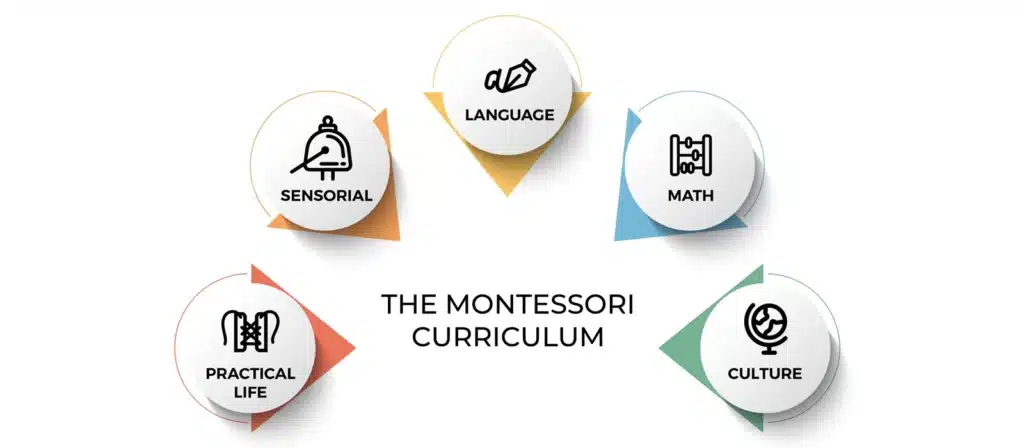
Create a Prepared Environment
Ensure that the learning environment is well-organized and accessible. Montessori educational materials should be arranged neatly on low shelves, allowing children to choose and return materials independently. A prepared environment fosters a sense of order and autonomy, essential components of the Montessori philosophy.
By carefully selecting and organizing Montessori educational materials, you can create a learning environment that supports your child’s natural curiosity and developmental needs, fostering a lifelong love for learning.
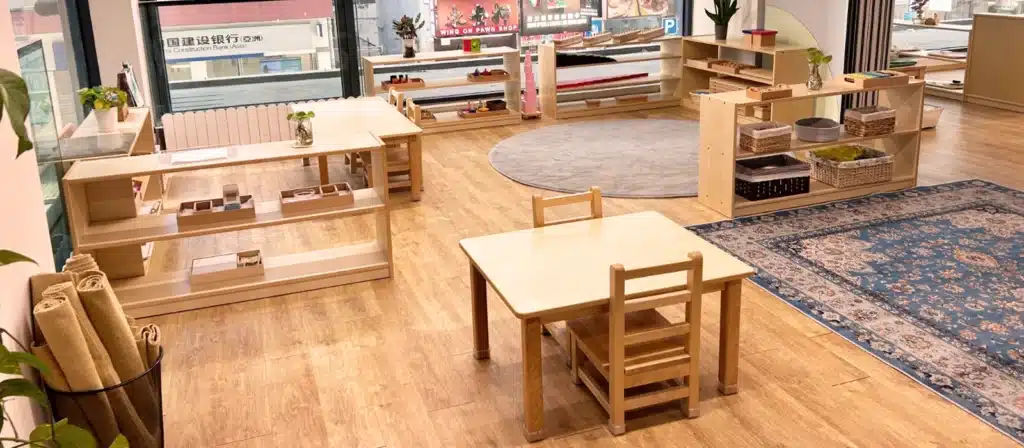
Setting Up a Montessori Learning Environment at Home
Creating a Montessori-friendly environment at home supports independence, curiosity, and a love for learning. Here are some tips for setting up your home:
Child-Sized Furniture
Ensure children can easily access their Montessori educational materials and participate in daily activities by providing child-sized furniture. This fosters independence and allows children to feel more comfortable and in control of their learning space.
Organized Spaces
Keep Montessori educational materials organized and within reach to encourage children to choose their activities independently. Use low, open shelves and baskets to maintain order and accessibility, teaching children the importance of tidiness and responsibility.
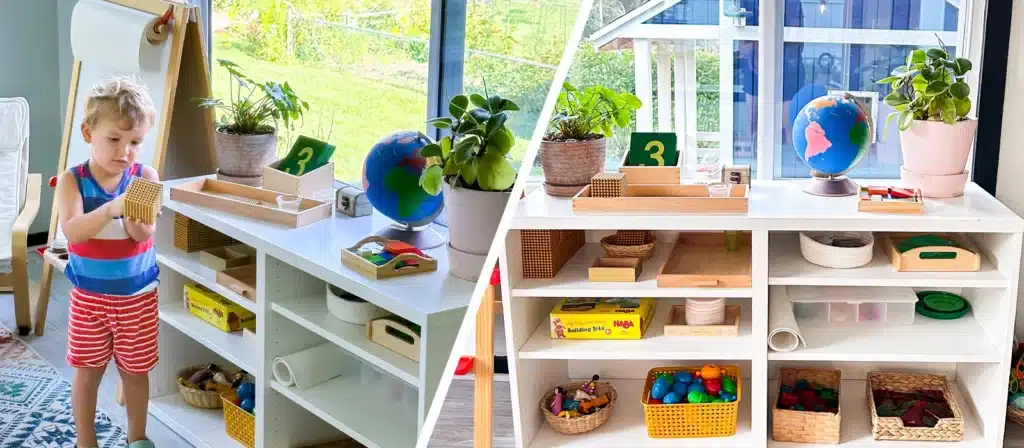
Real-Life Practical Activities
Incorporate practical life activities like cooking, cleaning, and gardening into your home routine. Use child-sized tools to allow children to actively participate in daily tasks, developing their fine motor skills and sense of responsibility. Integrating Montessori educational materials into these activities enhances learning and engagement.
By setting up a well-organized, accessible, and practical environment with the right Montessori educational materials, you can create a nurturing and engaging learning space at home.
Incorporating Montessori Educational Materials into Daily Activities
Integrating Montessori educational materials into your child’s daily activities helps reinforce learning and makes education a natural part of everyday life. Here are some practical ways to incorporate these materials:
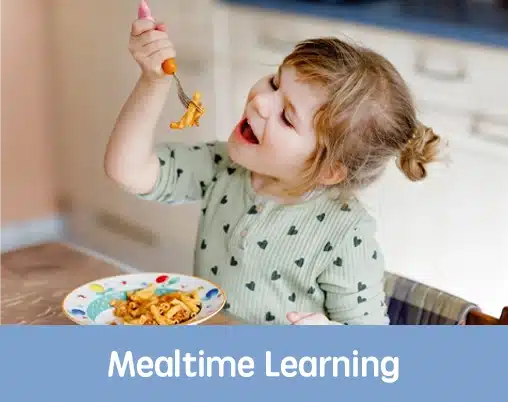
Mealtime Learning
Use Montessori educational materials like counting beads during snack time to count pieces of fruit or vegetables. This not only enhances their counting skills but also makes mealtime an engaging and educational experience.
Bedtime Reading
Incorporate language cards into your child’s bedtime reading routine. Use these Montessori educational materials to introduce new vocabulary words or practice phonetic sounds, making bedtime both relaxing and educational.
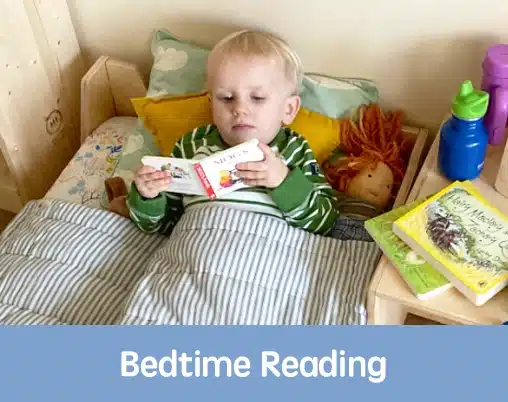
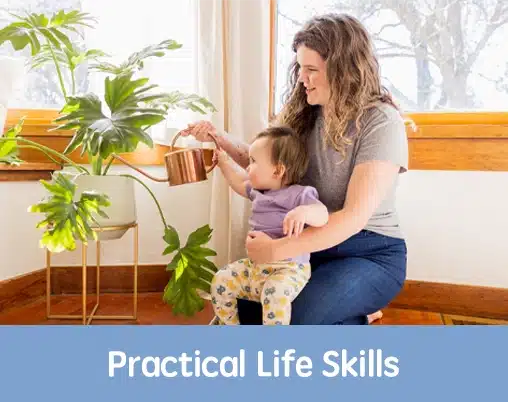
Practical Life Skills
Involve your child in cooking, cleaning, and gardening using child-sized tools. Montessori educational materials designed for practical life activities, such as small brooms, child-safe knives, and watering cans, help children develop fine motor skills and a sense of responsibility while participating in daily tasks.
Outdoor Exploration
Take Montessori educational materials outdoors for nature walks. Use items like leaf identification cards or insect observation kits to turn a simple walk into an educational adventure, fostering a love for nature and science.
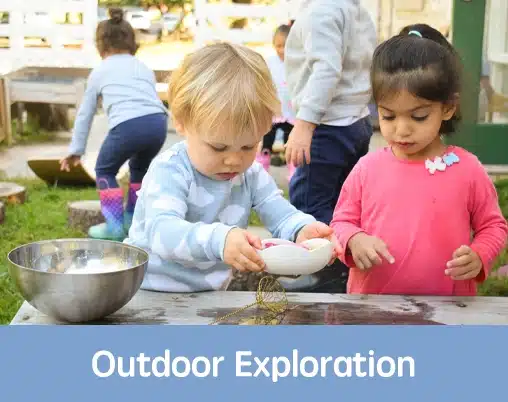
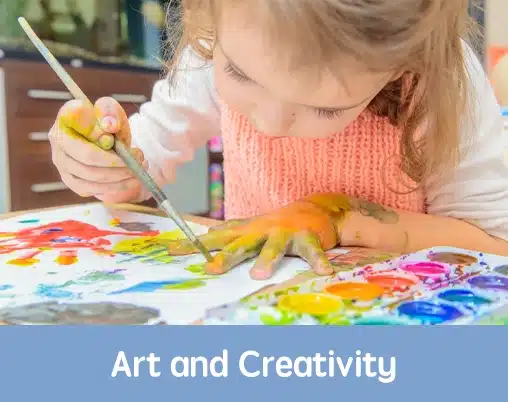
Art and Creativity
Set up an art station with Montessori educational materials like color tablets, shape stencils, and clay. Encourage your child to express their creativity through guided art activities that also teach them about colors, shapes, and textures.
By seamlessly integrating Montessori educational materials into daily activities, you can create a holistic learning environment that supports your child’s development and nurtures their natural curiosity.
Montessori Materials and Their Impact on Child Development
Montessori educational materials profoundly impact child development by promoting independence, confidence, and problem-solving skills. These materials are designed to be engaging and hands-on, encouraging children to explore and learn at their own pace. Here are some key ways Montessori educational materials support child development:
Promoting Independence
Montessori educational materials are designed to be self-correcting, allowing children to work independently and learn from their mistakes. This fosters a sense of autonomy and self-reliance as children gain confidence in their ability to solve problems on their own.
Building Confidence
By completing tasks using Montessori educational materials, children build self-esteem and confidence. The materials are designed to provide immediate feedback, which helps children understand their progress and celebrate their achievements.
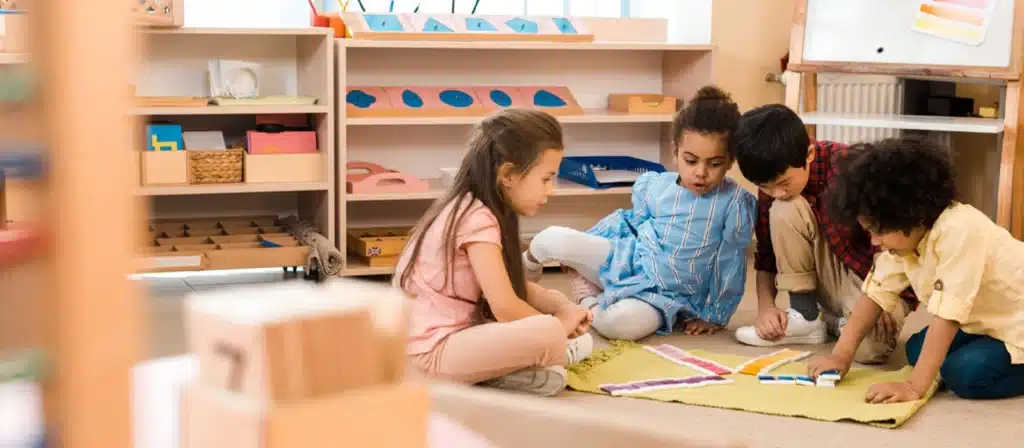
Enhancing Problem-Solving Skills
Montessori educational materials challenge children to think critically and solve problems. Whether it’s fitting geometric shapes together, counting beads, or matching language cards, these activities require children to use logic and reasoning, which enhances their problem-solving skills.
Developing Critical Thinking Abilities
Engaging with Montessori educational materials helps children develop critical thinking abilities. The hands-on nature of the materials encourages children to experiment, ask questions, and explore different solutions, fostering a deeper understanding of the concepts they are learning.
Fostering a Lifelong Love for Learning
Montessori educational materials make learning enjoyable and meaningful. By allowing children to learn through play and discovery, these materials instill a lifelong love for learning. Children become curious, motivated learners who are eager to explore new ideas and concepts.
By incorporating Montessori educational materials into their daily activities, children can develop a wide range of skills that support their overall growth and development. These materials play a crucial role in shaping confident, independent, and capable learners.
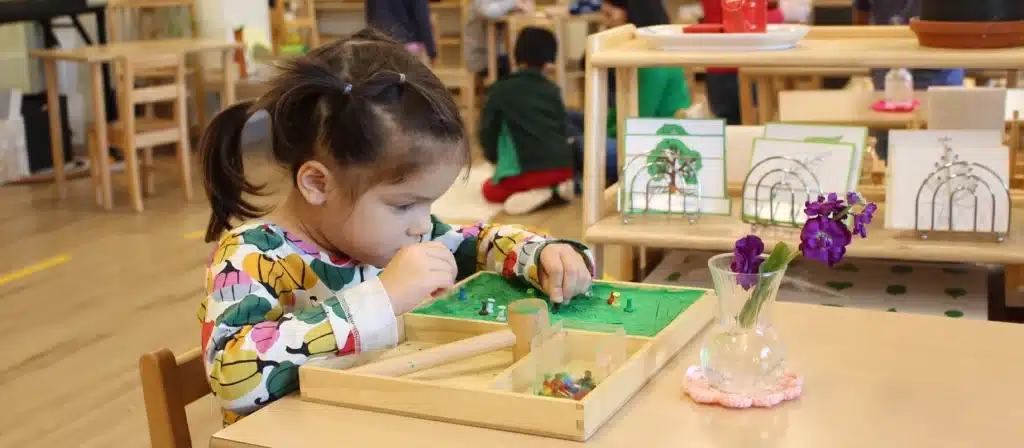
Where to Buy Montessori Educational Materials
Finding the right Montessori educational materials is crucial for creating an effective learning environment that fosters independence, creativity, and holistic development in children. Here are some trusted suppliers where you can purchase high-quality Montessori educational materials:
Nienhuis Montessori
Nienhuis Montessori is renowned for its high-quality, durable Montessori educational materials that meet strict Montessori standards. They offer a wide range of materials designed to support various aspects of child development.
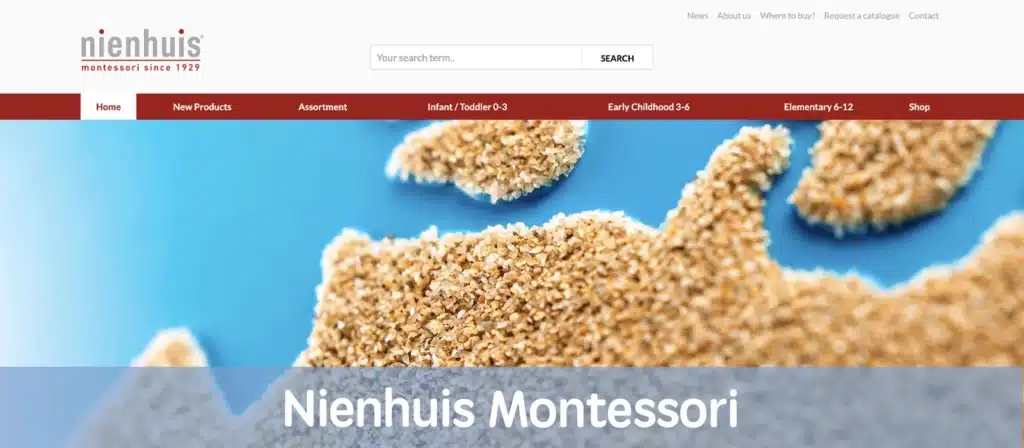
Kid Advance: Montessori Materials
Kid Advance provides affordable and high-quality Montessori educational materials suitable for various age groups and developmental needs. Their selection includes practical life, sensorial, language, and math materials.
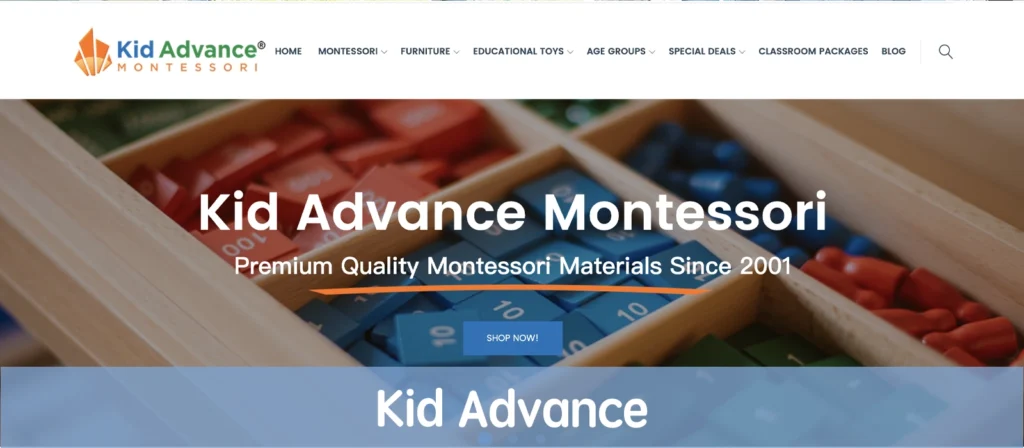
Alison’s Montessori offers an extensive selection of Montessori materials, including language, math, sensorial, and practical life materials. Their products are designed to adhere to Montessori principles and support holistic child development.
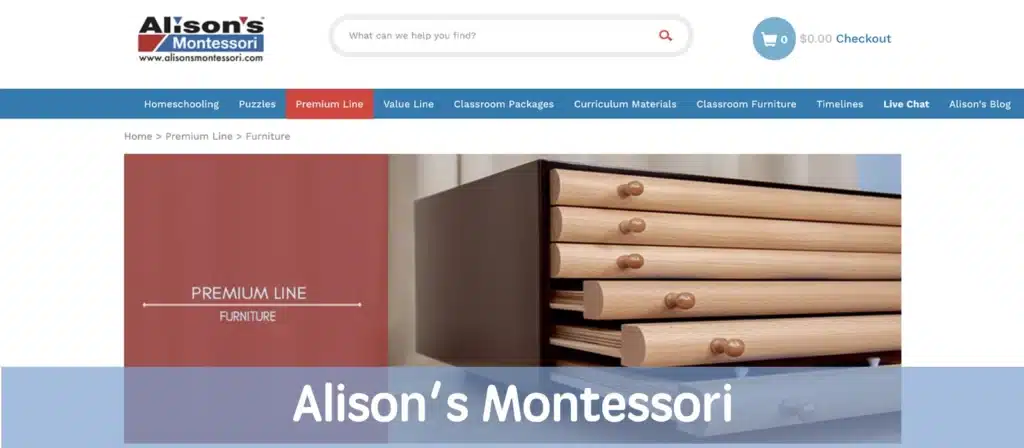
TOP Montessoris is a reliable supplier offering a comprehensive range of Montessori materials designed to support holistic child development. They specialize in preschool furniture, Montessori & Reggio furniture, daycare furniture, and kindergarten toys.
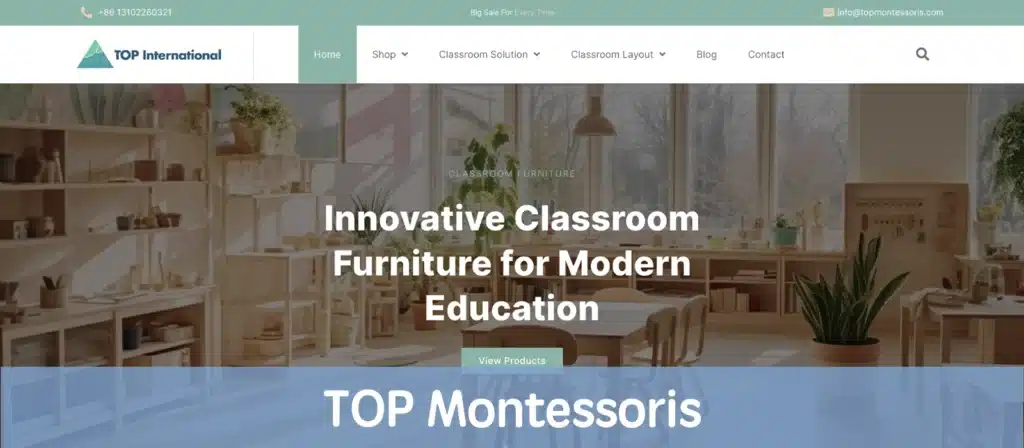
Xiha Montessori provides a wide range of Montessori materials that are crafted to support the Montessori method. They ensure quality and adherence to educational standards, making their products suitable for various developmental stages.
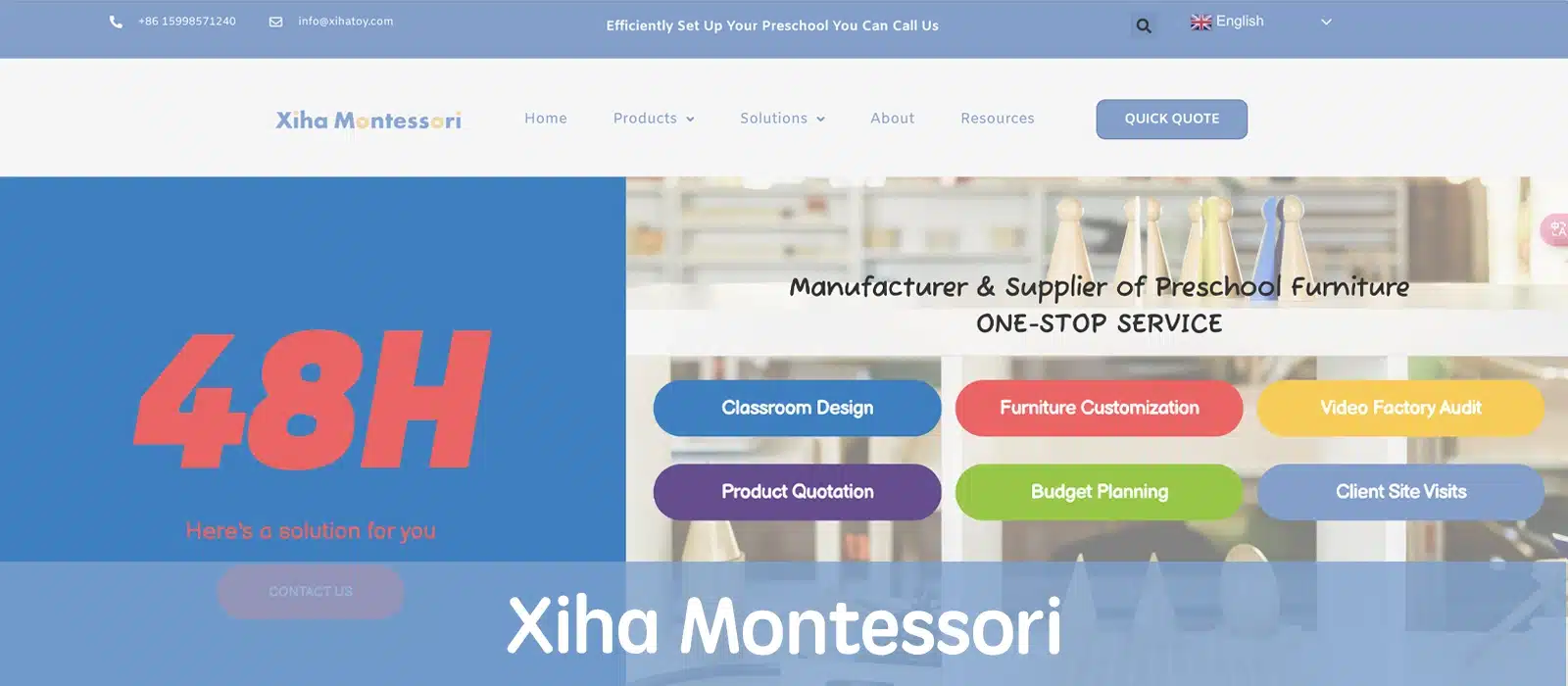
Comparison and Summary
Below is a comparison of these suppliers based on quality, range of products, and adherence to Montessori standards:
| Supplier | Quality | Range of Products | Adherence to Montessori Standards | Notable Features |
|---|---|---|---|---|
| Nienhuis Montessori | Expensive | Wide range of high-quality materials | Strict adherence | Durable materials, trusted by educators |
| Kid Advance | High | Practical life, sensorial, language, math | Good adherence | Budget-friendly, suitable for all ages |
| Alison’s Montessori | Comprehensive | Language, math, sensorial, practical life | High adherence | Extensive selection, holistic development |
| TOP Montessoris | High | Preschool, Montessori & Reggio furniture, daycare, kindergarten toys | High adherence | One-stop shop for classroom/home setups |
| Xiha Montessori | Affordable, good quality | Diverse range for all developmental stages | High adherence | Ensures quality and educational standards |
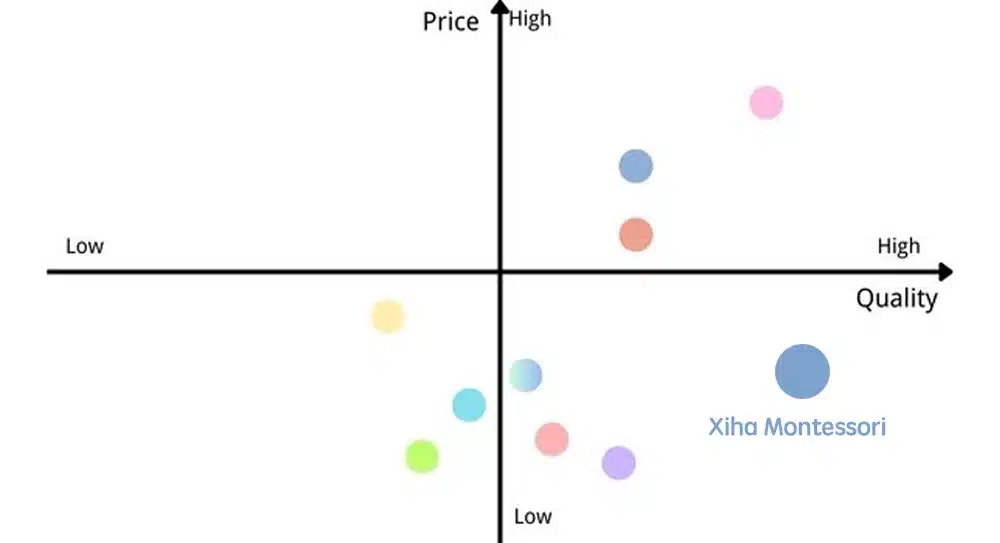
Each supplier has its strengths, so the best choice depends on your specific needs and priorities. Whether you prioritize quality, affordability, or a broad selection, these suppliers offer excellent options for sourcing Montessori educational materials.
Conclusion: Empowering Your Child with Montessori Materials
Montessori educational materials are more than just tools; they are the foundation of a learning environment that nurtures independence, curiosity, and holistic development. By carefully selecting and organizing these materials, whether in a classroom or at home, we can create spaces where children thrive and discover the joy of learning. These materials foster critical thinking, problem-solving, and a lifelong love for learning. Children develop confidence, independence, and a sense of responsibility through their interactions with Montessori educational materials.
In summary, Montessori educational materials are essential for creating an enriching and effective learning environment. By embracing the Montessori philosophy and utilizing these materials, we empower our children to reach their full potential and develop a lifelong passion for learning.

